1756 - 2021
265 Years of RIEDEL Glass: A Story of 11 Generations
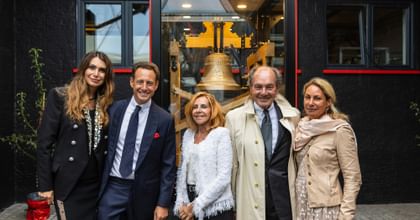
The history of the Riedel family is just as animated as the history of Europe and, what’s more, is inseparably linked with it. Travel back through 11 generations with us to celebrate 265 years of RIEDEL glass!
In 1756 the genius Mozart was born, the first wine region in Portugal was registered, and Casanova escaped from the Doge’s Palace in Venice. In this bygone age, Maria Theresa ruled as Empress of the Austrian empire and there were signs of an impending storm in Europe.
During the Seven Years' War, Austria-Hungary tried to win back Silesia (a historical region of Europe covering Poland, Czech Republic and Germany), and the battles involving the great powers shake the continent. Over the following years, governments across Europe forged ahead with agricultural modernization and industrial development to get the economy moving again.
It was during this spirit of optimism that a company was started that would come to epitomize high-quality glass products over the next centuries. It was in Bohemia, then part of the Habsburg Monarchy, that third generation Johann Leopold Riedel started the story of this dynasty, which to this day remains inseparably connected with glass.
The tradition of the Riedels as glassmakers is rich in touching legends and unbelievable success stories, as well as economic crises and personal tragedies. Through skill and creativity, the RIEDEL company managed to withstand the end of the monarchy, the social upheavals of the newly established Czechoslovakia Republic, and the effects of the global economic crisis.
After the Second World War, the Riedel family was dispossessed, lost all their property in Bohemia, all their factories and the entirety of their private assets. Walter Riedel, the eighth generation of the company, spent ten years imprisoned in Russia and all future prospects seemed to have evaporated. But the story played out differently thanks to the enormous courage and effort of Walter Riedel. It is his legacy that the bohemian Riedel tradition began anew, in Kufstein Tyrol, Austria. And the rest, as they say, is history ...
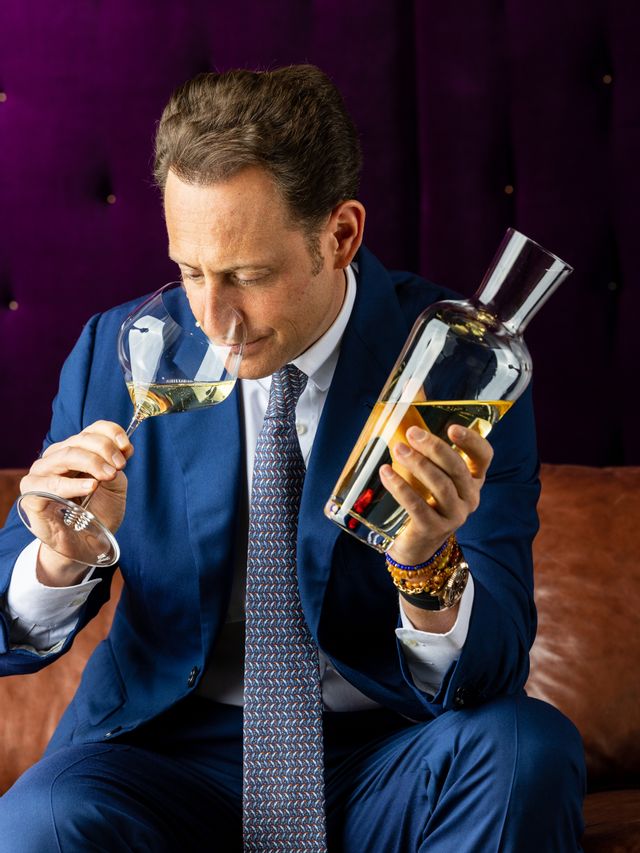
11th Generation
Maximilian Josef Riedel (born 1977)
Maximilian Josef has been working for the company since 1997. At age 25, he became CEO of Riedel Crystal of America, and proved his talent for management, building up North America to become the largest export market for RIEDEL.
In addition to his function as CEO, Maximilian has made an excellent name for himself across the globe as a designer of decanters and glasses.
In 2001 he kicked off the RIEDEL focus for the on-premise by creating "O" Series, consisting of stemless varietal specific wine glasses. He designed the first free-formed RIEDEL handmade decanter Cornetto, which was the birth of a wide collection of free-formed decanter designs. He has since been awarded design awards for his decanters.
Maximilian Riedel was instrumental in developing the RIEDEL strategy for online sales, which has become the brand’s most important sales channel for "direct to consumer" business.
As a socially-engaged person who strives to connect people, he initiated many valuable partnerships, including high-end German manufacturer Miele, and various charity organisations supporting cancer and HIV/AIDS. His support of the wine industry covers all regions and countries, continuing the strong relationships with world-leading wineries that his father Georg Riedel began.
Early on in the emergence of social media, Maximilian Riedel recognised that these platforms enabled him to communicate directly with his consumers. The company now uses Facebook and Instagram to cultivate educational and inspiring conversations with consumers, enabling Maximilian to share his family’s legacy and learnings in everyday conversations.
On 1 July 2013, Maximilian was handed the management of Tiroler Glashütte and its worldwide subsidiaries by Georg J. Riedel. He has since lead the company through challenging times with great finesse and success, ranging from a committed focus on sustainability to increasing the safety and efficiency of production and logistics during Covid-19.
11th Generation
Laetizia Riedel-Röthlisberger (born 1974)
Laetizia is an attorney and sits on the family board. She advises on legal matters for the family, the companies, the RIEDEL headquarter and the RIEDEL subsidiaries. She specializes in business law, design protection and copyright, managing the worldwide brand names and rights of the Riedel Group. She is a proud mother of three boys.
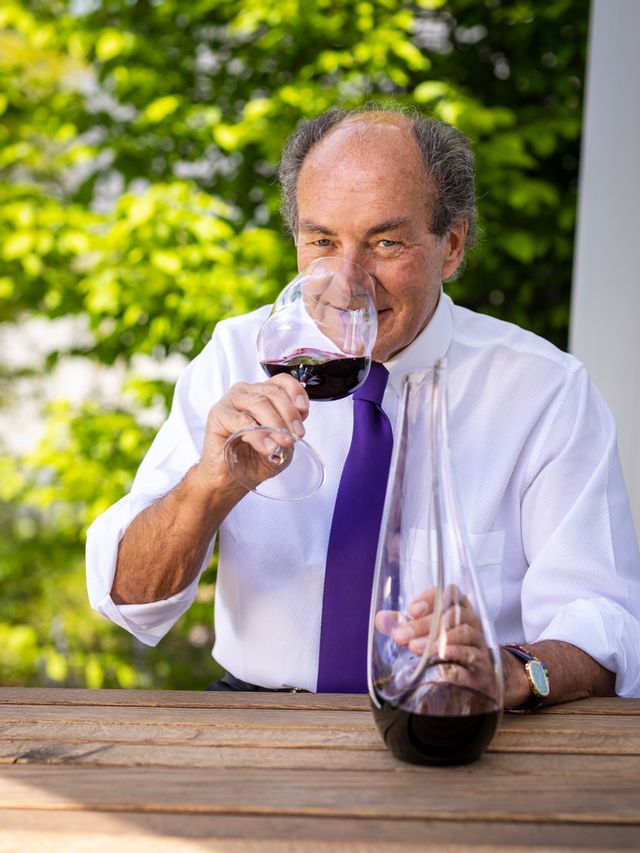
10th Generation
Georg Josef Riedel (born 1949)
Georg Josef used his world vision to take RIEDEL glass to global success. In as early as 1979 he recognized the importance of the American market and founded the subsidiary company "Riedel Crystal of America".
In 1986, he introduced history’s first machine-made glass based on wine varieties - Vinum!
Vinum enabled the RIEDEL brand to turn the philosophy of the functional wine glass, developed by the company, into something affordable and therefore also well-known around the world.
As a means of consolidating the business, Georg Riedel took over the German company, Nachtmann, in 2004, laying the foundations for further growth. Today, RIEDEL has a 97% export rate, confirming their position as world leader in the production of functional glasses.
In his long career as a glassmaker and glass designer, Georg Riedel has shaped many functional glasses, each specifically designed to enhance the enjoyment of beverages. As the leading mind behind varietal specific wine glasses, Georg Riedel strongly believes that a finely tuned glass shape enhances the perception of all aromatic beverages. His latest creations - RIEDEL Winewings SL (2021) - continue to push the boundaries of the conventional wine glass shape with their striking design.
As the company owner, Georg continues to be in daily support of his management. His responsibilities include looking after the North American market, developing new software to improve operations, and improving manufacturing and efficiency of machine-made production in the core RIEDEL factories in Bavaria, Amberg and Weiden.
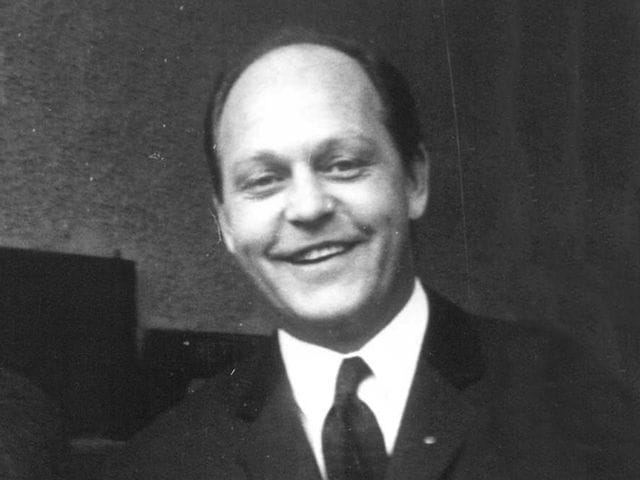
9th generation
Claus josef riedel (1925 - 2004)
Claus Josef was a great visionary. Thanks to his considerable artistic talent and his extraordinary feel for form and proportion, he invented the wine friendly wine glass. This revolutionary move defined him as the "father of the modern wine glass".
Claus J. Riedel was the first in the history of glass who could determine the interplay between form, size and rim diameter of a glass for the optimal enjoyment of wine.
His glasses had a long stem and smooth, undecorated, thin-blown bowls. In the 1950s and 1960s, they were awarded numerous design prizes. In 1973, his research and ingenuity accumulated to once again turn the name Riedel into a leader in the world of glass: the first line dedicated to wine enjoyment. They are known all across the world today under the name Sommeliers.
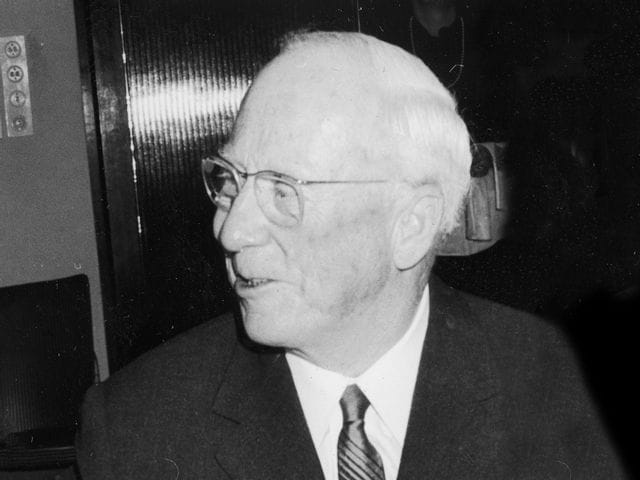
8th generation
Walter Riedel (1895 - 1974) inherited his father’s talents. He brought about many technical developments in the glass industry and came up with numerous inventions, such as spinnable glass fibers, signal colors, reflectors, elaborate laboratory glasses and much more.
He steered the company towards technical glass production and in doing so reacted to the needs of the interwar period.
In 1944 the German Ministry of Aviation set up a secret project called "Tonne", a ground-based system of air reconnaissance using radar. At the time the monitors used for this measured a maximum diameter of 38 cm, however Walter Riedel and his glass engineers were able to double both the dimensions, and as a result also the resolution. They produced a monitor with a diameter of 76 cm - a real global revelation at the time.
Walter Riedel recognized the potential of this invention and secured the rights to use the development for civil purposes. However, this plan was thwarted by the Russian occupying forces. In May 1945, the scientist Walter Riedel was arrested and conscripted. This ended the Bohemian Riedel family history. After the Second World War the family was dispossessed, lost all their property, all their factories and the entirety of their private assets.
Walter Riedel finally returned in 1955 from imprisonment.
1956 - 200 years after the founding of the first Waldglas works in Bohemia - the new Riedel story was started up in Kufstein, Austria. With the support of the Swarovski family, Walter Riedel and his son Claus took over the ailing Tirol glassworks. A hand-blown glass production firm - as it was before in Bohemia - was established.
Walter Riedel represents both the Bohemian past and the start into a new future in Austria.
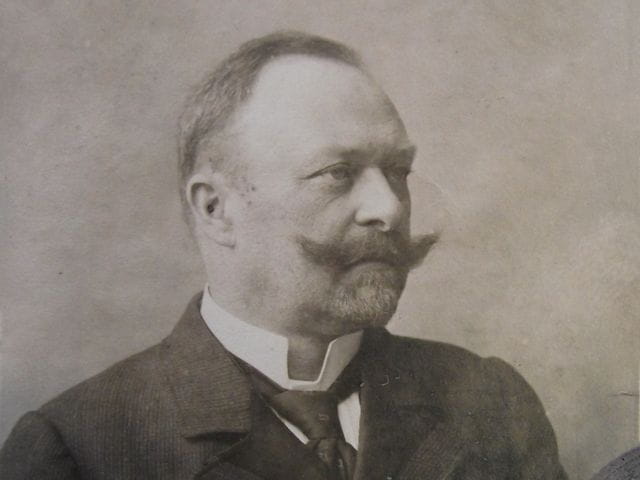
7th generation
Josef Anton Riedel the Younger (1862 - 1924) was a gifted chemist and extremely talented engineer.
In his glassworks 600 precisely defined colors could be melted in order to produce glass beads and gifts. As a mechanical engineer, he developed the finishing and automatization of the production of glass beads and registered numerous patents for this.
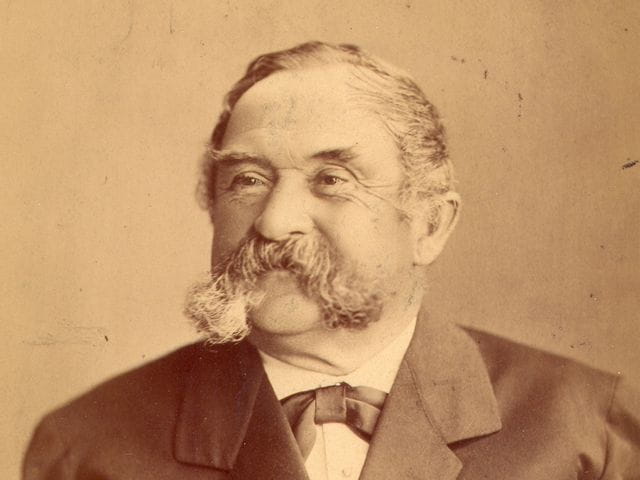
6th generation
The son of his brother, Josef Riedel, was employed as an assistant at the age of 14. In 1840 at the age of 24 Josef married his cousin Anna, Franz Xaver Riedel’s daughter.
Josef Riedel the Elder (1816-1894) not only showed great talent, but he was also lucky to have lived at the start of the industrial age. He has gone down in history as the "Glass King of the Jizera Mountains".
Josef Riedel the Elder left the Waldglas works and shifted production to the valley. He took advantage of the newly opened train line in 1875. It provided access to the most important sales markets of the industrialized world and laid the foundations for further expansion of his business.
His first wife Anna died at the age of 36. His son, from his second marriage to Johanna Clementine Neuwinger, took the Riedel dynasty into its seventh generation.
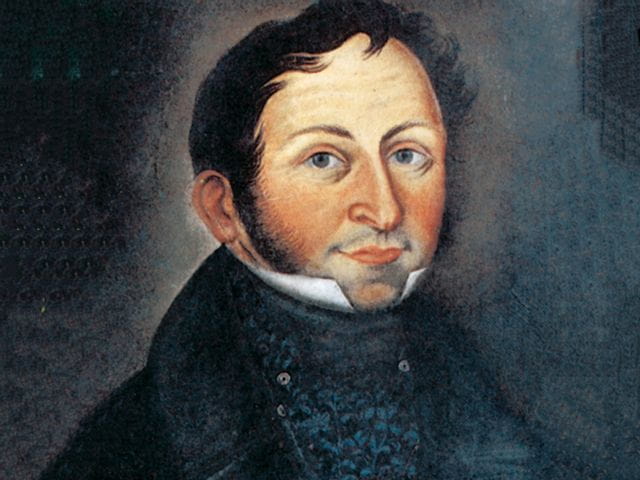
5th generation
Franz Xaver Anton Riedel (1786-1844) was a famous engraver and glass cutter of considerable talent and craftsmanship. He signed his artworks, which are highly sought after at auctions today.
He was able, for the first time in the history of glass, to melt different colors of glass: two fluorescent colors - yellow and green. The two colors have been recorded in literature as Anna Yellow and Anna Green, being named after his daughter.
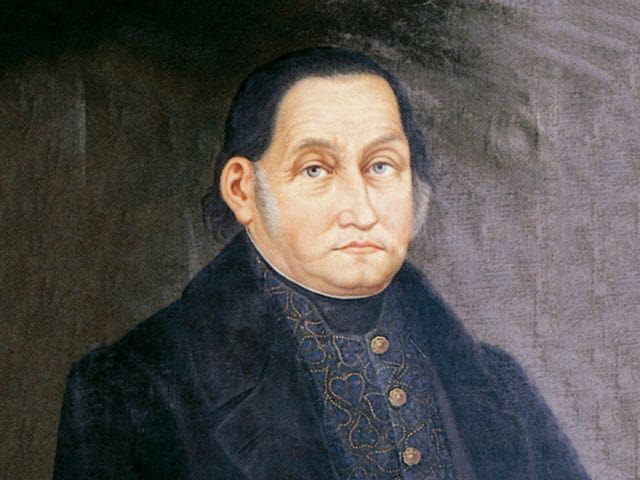
4th Generation
Anton Leopold Riedel (1761-1821) expanded his father’s business, as well as consolidating and enlarging it. The product range was transformed. It was no longer focused on plate glass, but much more on luxury articles.
This led to the development of new and lucrative sectors: the production of hollow glass and refinement through surface finishing, and the production of chandelier crystal.
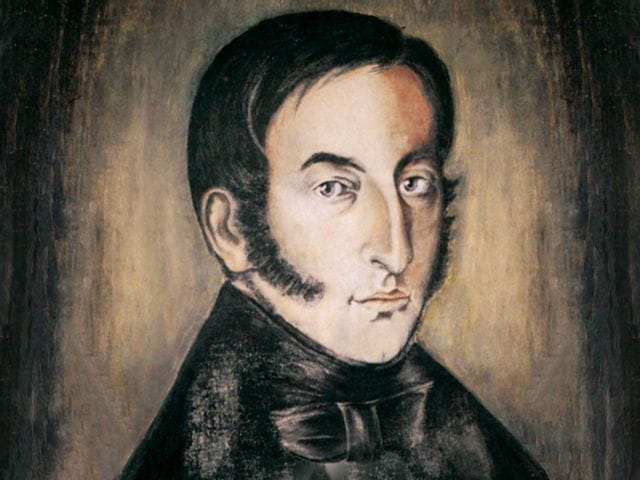
3rd generation
Johann Leopold Riedel (1726-1800) has gone down in history as the founder of the entrepreneurial dynasty. On 17 May 1756 he put the first Waldglas works into operation.
In the same year the Seven Years' War started. Empress Maria Theresia made a reparation fund available to her Bohemian subjects. This enabled, for instance, the windowpanes in the severely damaged city of Zittau to be financed. He produced not only plate glass, but all kinds of hollow glasses.
2nd Generation
1st Generation
Locations